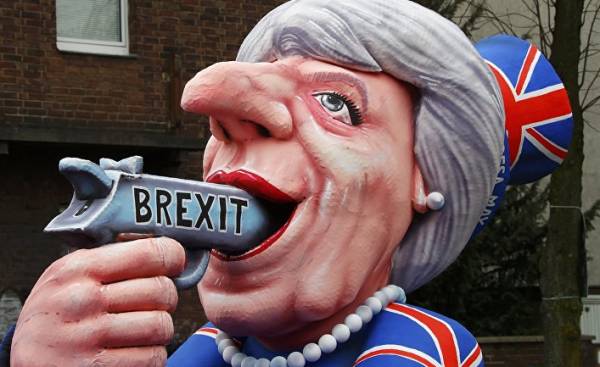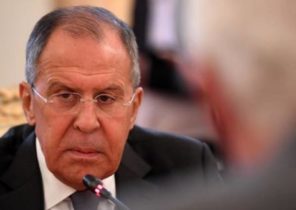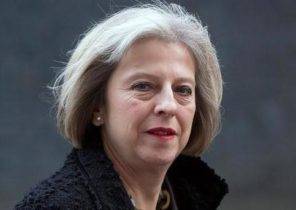
LONDON — British and American authorities and numerous experts who regularly comment on issues of international trade, without understanding its reality, time to face the truth. According to the final data on the export and import of Germany for 2016, its largest trading partner is now China. France and the United States moved into second and third place respectively.
This news is not a surprise. I often thought about the fact that by 2020, German companies (and politicians) may prefer a currency Union with China currency Union with France, as the amount of German-Chinese trade, apparently, will continue to grow.
And they actually grow primarily at the expense of Chinese exports to Germany. But the volume of German exports to China also increased. Despite the recent slowdown of the Chinese economy, soon Germany will export more to China than to France, which is its closest neighbour and most important partner. Germany now exports more to China than to Italy. For German exporters, France and Britain remained the only national markets in Europe, which are more Chinese.
Experienced experts in the field of international trade typically follow two main rules. First, the greater geographic distance between two countries, so as a rule, the smaller the volume of trade between them. Second, States tend to actively trade with big countries with strong domestic demand, than with small countries with weak demand.
Fresh German trade statistics confirms both rules, but especially the second. Large, though distant geographically, the country is not just size, but also its value from smaller countries. In discussions about trade agreements, this fact is too often forgotten, especially in a tense political atmosphere that now exists in the UK and the USA.
In the UK House of Commons has already approved a law paving the process of leaving the European Union. However, the House of lords requires to Supplement this law the norm on the protection of EU citizens living in the UK. In February I took a small part in the marathon debate in the House of lords, arguing that, even if Pexit and is not the biggest problem for economic policy in the UK, it is likely to exacerbate other problems of the country, in particular, consistently low productivity growth, weak educational and vocational training, the geographical inequality.
In addition, I was warned that after Breccia Britain to succeed will need more ambitious approaches to foreign trade, somewhat similar to the approaches of China and India. Unfortunately, British strategy in the sphere of foreign trade after Breccia influenced by domestic political considerations: it should be “Patriotic” and to focus on new trade agreements with Australia, Canada, New Zealand and other Commonwealth countries, while ignoring the harsh economic realities.
New Zealand is a beautiful country, but it has a fairly large economy and very far from Britain. Moreover, despite the huge problems, Greece’s economy continues to be more new Zealand.
Many British policy — all members of the campaign for withdrawal from the EU — ignoring the likely costs of withdrawal from the European common market. But this factor in itself requires a very serious attention when you consider the size of the overall market and its geographical proximity. It is very important that Britain maintained strong trade ties with many countries of the EU after Breccia. To do this, Britain needs to develop the export of services is the sector in which it may still remain real, clean, natural advantage.
At the same time Britain needs to urgently try to raise relations with China to a new level. Former British Prime Minister David Cameron called them “Golden” relationship. If there is any country with which Britain should be willing to sign a new trade agreement, it is, of course, China. In a short period of my work in the British government I helped George Osborne, who was then the Minister of Finance, to convince Cameron that we should try for decades to make China our third largest export market. Does the new government to consider this task a priority?
In addition to China, Britain should also actively focus on trade relations with India, Indonesia and Nigeria. All of these countries will have a significant impact on the global economy and global trade in the coming decades.
U.S. President Donald Trump and his economic advisers need to go back to reality, especially in matters of foreign trade. They could start with the study of foreign trade patterns of Germany, especially her relations with China. Of course, China has a huge surplus in bilateral trade with the United States; but this country is also a growing export market for U.S. companies. If the trend of the last 10-15 years continues, China will soon replace Canada and Mexico as a major export market of America.
As the continuation of income growth of Chinese households, their demand for the most competitive American goods and services will only increase. Instead of talking nonsense about currency manipulation of China, Trump should strengthen market forces that will create a new balance in bilateral trade.
The same applies to the total external deficit of the United States. While the US does not increase the level of savings relative to domestic investment needs, they will still need foreign capital inflows. And this, in turn, requires the preservation of the imbalance of the current account and foreign trade.
Finally, demanding renegotiation of the North American free trade agreement (NAFTA), trump is at risk similar to the risk of the supporters of Breccia. Despite all the recent successes of China, Canada and Mexico remain the closest neighbours and the critically important trading partners of the United States. Provoking a potential failure in the current flow of imports from these three countries, politics trump can lead to a rise in prices for imported goods, at the same time jeopardizing the growth of American exports.







